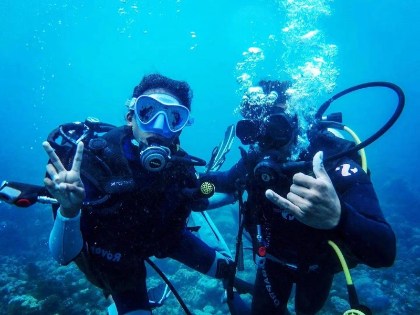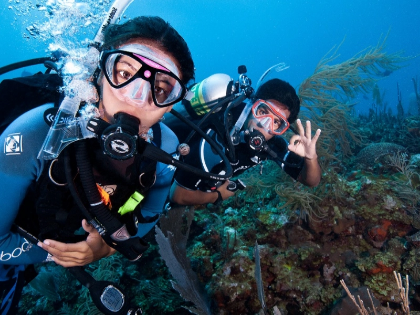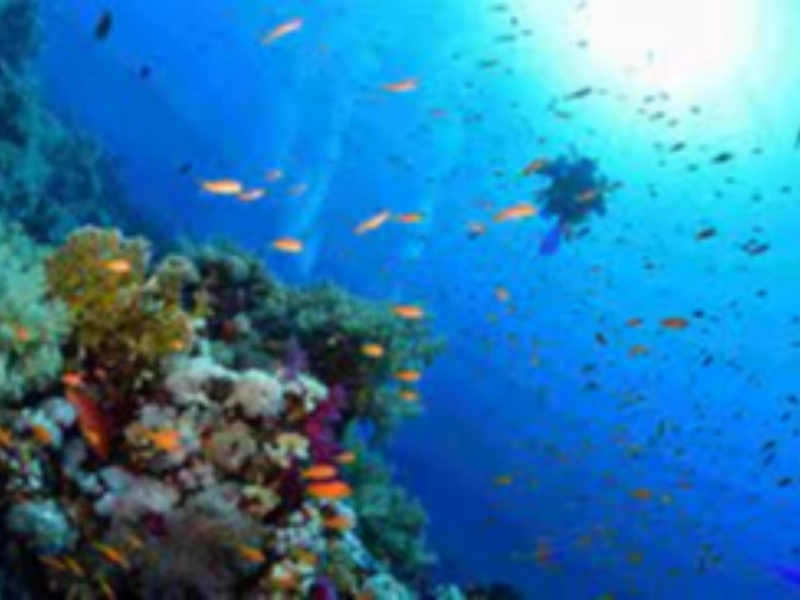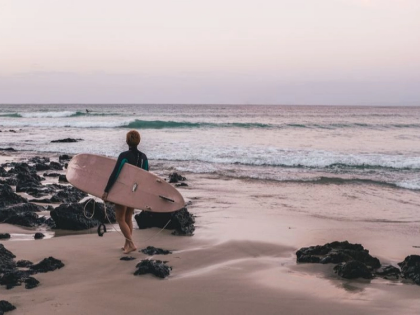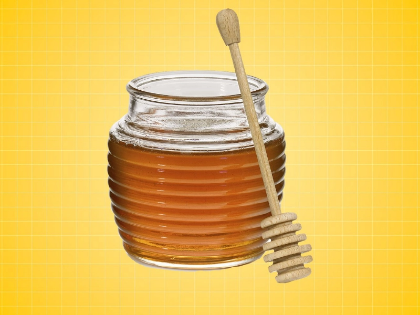Adaptive Diving - Making Scuba Accessible for All
Scuba diving has been known to be a powerful therapeutic experience for many people. Its combination of exercise, meditation and adventure can boost mental health for those dealing with PTSD or autism. It has also been shown to help injured veterans overcome their trauma, giving them a sense of accomplishment and confidence that can be carried into other areas of their life.
What is Adaptive Diving?
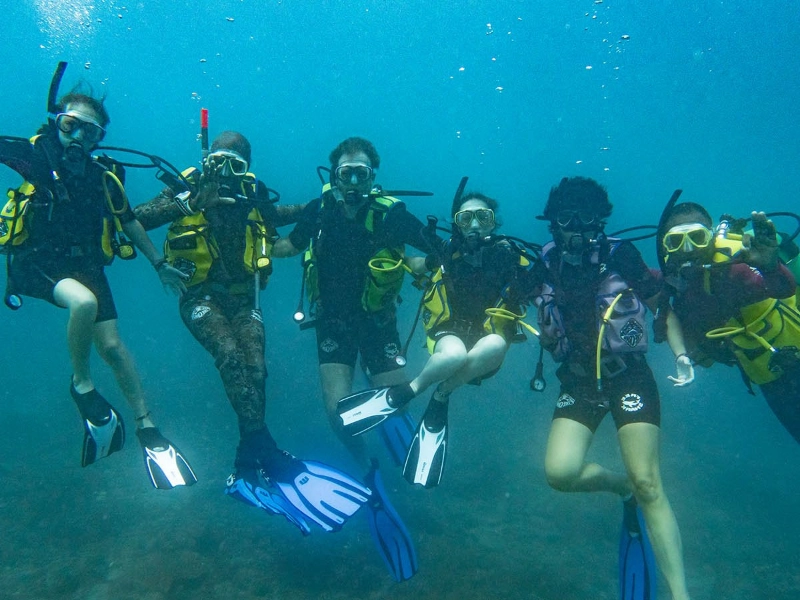
Adaptive Arm Fins
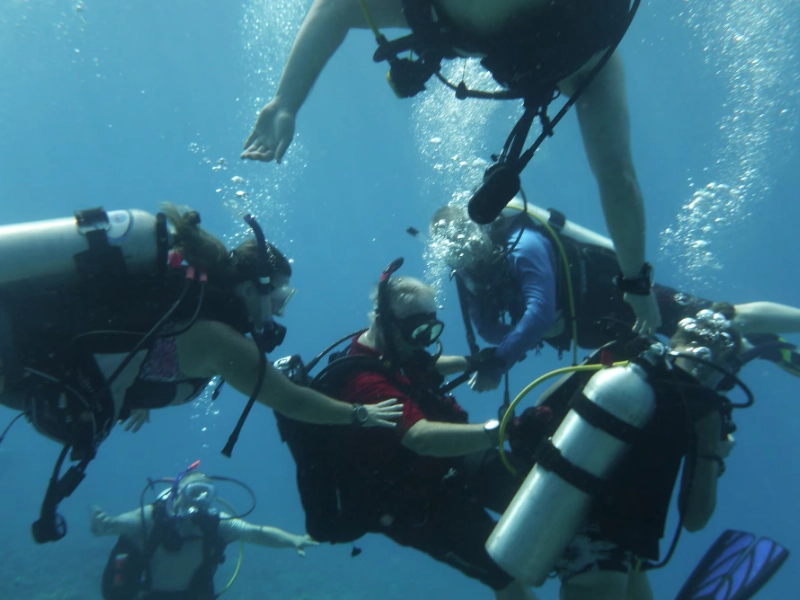 For people with spinal cord injuries or other conditions that limit lower-limb movement, adaptive arm fins allow them to independently power themselves through the water. These unique fins also provide a larger area of resistance in the water than webbed gloves, helping adaptive divers keep up with their buddies.
Adaptive diving is an empowering experience that allows individuals to identify as something other than their disability. It boosts confidence, encourages social connections and increases opportunities for outdoor adventure.
As the scuba world becomes more inclusive, more individuals with disabilities are becoming certified divers and experiencing the incredible feeling of weightlessness under the sea. However, it’s important to know that scuba isn’t suitable for everyone. To ensure safety, individuals should seek out a trained instructor and be medically screened for conditions like seizure disorders that may prevent them from being safely certified as a diver.
For people with spinal cord injuries or other conditions that limit lower-limb movement, adaptive arm fins allow them to independently power themselves through the water. These unique fins also provide a larger area of resistance in the water than webbed gloves, helping adaptive divers keep up with their buddies.
Adaptive diving is an empowering experience that allows individuals to identify as something other than their disability. It boosts confidence, encourages social connections and increases opportunities for outdoor adventure.
As the scuba world becomes more inclusive, more individuals with disabilities are becoming certified divers and experiencing the incredible feeling of weightlessness under the sea. However, it’s important to know that scuba isn’t suitable for everyone. To ensure safety, individuals should seek out a trained instructor and be medically screened for conditions like seizure disorders that may prevent them from being safely certified as a diver.
Adaptive Wetsuits
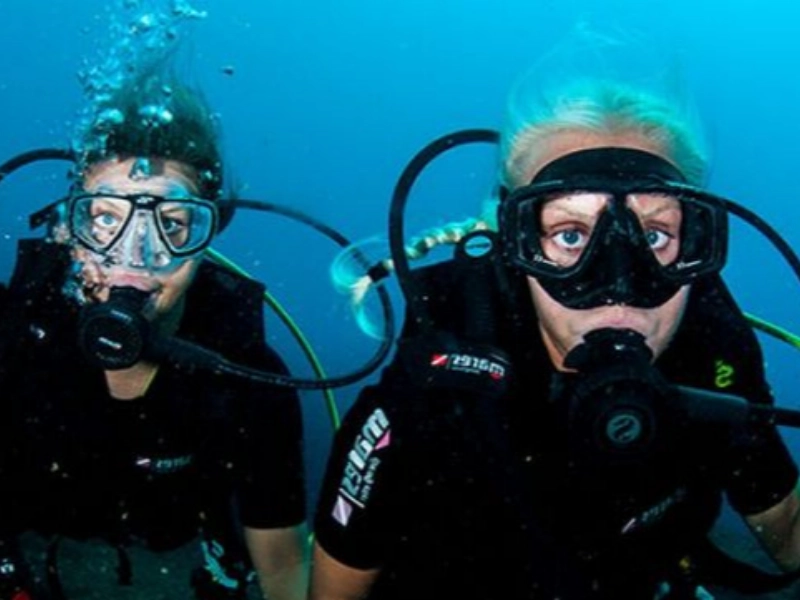 Adaptive wetsuits allow people with disabilities to enjoy the fun and adventure of scuba diving, without compromising on safety or functionality. Adaptive wetsuits can include zippers at the wrists and ankles to make it easier for adaptive divers to get in and out of the wetsuit.
The serene underwater environment and the sensation of weightlessness provide therapeutic benefits to individuals with physical disabilities, as well as psychological conditions like depression and anxiety. Additionally, the repetitive motion of scuba diving activates multiple muscle groups, helping to build strength and improve physical fitness.
There are adaptive scuba certification courses and programs around the world, designed to teach disabled individuals to dive safely and independently. These programs are run by non-profit organizations, and focus on abilities not limitations. Individuals with limb loss, autism, varying levels of paralysis, cerebral palsy, and many other disabilities are successfully participating in the sport.
Adaptive wetsuits allow people with disabilities to enjoy the fun and adventure of scuba diving, without compromising on safety or functionality. Adaptive wetsuits can include zippers at the wrists and ankles to make it easier for adaptive divers to get in and out of the wetsuit.
The serene underwater environment and the sensation of weightlessness provide therapeutic benefits to individuals with physical disabilities, as well as psychological conditions like depression and anxiety. Additionally, the repetitive motion of scuba diving activates multiple muscle groups, helping to build strength and improve physical fitness.
There are adaptive scuba certification courses and programs around the world, designed to teach disabled individuals to dive safely and independently. These programs are run by non-profit organizations, and focus on abilities not limitations. Individuals with limb loss, autism, varying levels of paralysis, cerebral palsy, and many other disabilities are successfully participating in the sport.
Adaptive Equipment
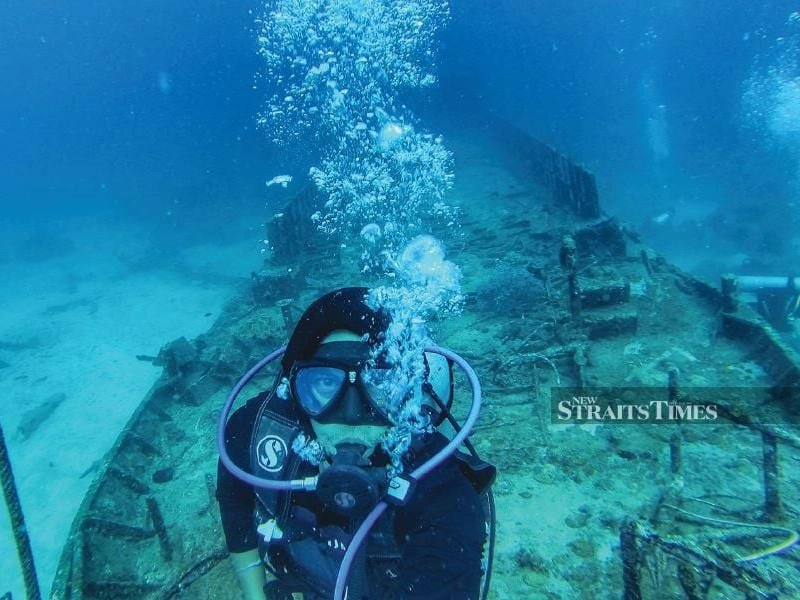 Adaptive equipment like cylinder flotation pods, which eliminate the tendency of divers to roll while diving and allow them to focus on their dives, is another way in which technology has improved scuba for disabled people. Other adaptive equipment includes communication devices, which help divers with speech impairments, and weight systems that enable flexible placement of tank weighting.
Research into the benefits of adaptive sports and activities show that for disabled people, participating in these types of activities gives them a sense of achievement and pride that can inspire them to tackle other seemingly impossible goals, such as regaining their mobility and independence.
PADI is proud to offer a variety of inclusive experiences and specialized training that allows disabled individuals to become certified scuba divers, enjoy immersive dive adventures without certification, and to train as an adaptive support diver to assist friends or family members with disabilities. To learn more about how you can make scuba accessible for all, contact your local PADI Dive Center or e-mail us here.
Adaptive equipment like cylinder flotation pods, which eliminate the tendency of divers to roll while diving and allow them to focus on their dives, is another way in which technology has improved scuba for disabled people. Other adaptive equipment includes communication devices, which help divers with speech impairments, and weight systems that enable flexible placement of tank weighting.
Research into the benefits of adaptive sports and activities show that for disabled people, participating in these types of activities gives them a sense of achievement and pride that can inspire them to tackle other seemingly impossible goals, such as regaining their mobility and independence.
PADI is proud to offer a variety of inclusive experiences and specialized training that allows disabled individuals to become certified scuba divers, enjoy immersive dive adventures without certification, and to train as an adaptive support diver to assist friends or family members with disabilities. To learn more about how you can make scuba accessible for all, contact your local PADI Dive Center or e-mail us here.

